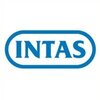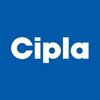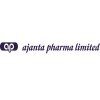
i
Lupin
Proud winner of ABECA 2025 - AmbitionBox Employee Choice Awards
Filter interviews by
Lupin Executive Production Interview Questions and Answers
8 Interview questions
Change controls are procedures used to manage changes to a product or process.
Change controls ensure that changes are properly evaluated, approved, and implemented
They help to prevent errors, defects, and deviations from specifications
Examples include changes to manufacturing processes, equipment, or materials
Documentation and record-keeping are important aspects of change controls
Deviation refers to the difference between an expected or planned outcome and the actual outcome.
It is a measure of how far a result is from the expected or average result.
Deviation can be positive or negative depending on whether the actual result is higher or lower than expected.
It is commonly used in statistics to measure the variability of a set of data.
For example, if the average height of a group of people i...
The type of pump and valve depends on the specific production process and requirements.
The selection of pump and valve depends on factors such as the fluid being handled, flow rate, pressure, temperature, and material compatibility.
Common types of pumps include centrifugal pumps, positive displacement pumps, and diaphragm pumps.
Common types of valves include ball valves, gate valves, globe valves, and butterfly va...
Distillation is a process of separating components of a liquid mixture based on their different boiling points.
Distillation involves heating a liquid mixture to vaporize the more volatile components.
The vapor is then cooled and condensed back into a liquid, resulting in the separation of the components.
The component with the lower boiling point will vaporize first and can be collected separately.
Common examples of...
There are various types of distillation, such as fractional distillation, simple distillation, and vacuum distillation.
Fractional distillation is used to separate mixtures with close boiling points, such as in the separation of different components of crude oil.
Simple distillation is used to separate liquids with significantly different boiling points, such as in the purification of water.
Vacuum distillation is us...
Corrective action is taken to fix a problem that has already occurred, while preventive action is taken to avoid a problem from happening in the future.
Corrective action is reactive, while preventive action is proactive.
Corrective action is taken after a problem has been identified, while preventive action is taken before a problem occurs.
Examples of corrective action include repairing a machine that has broken do...
Change controls are procedures used to manage changes to a product or process.
Document change requests
Evaluate impact of change
Obtain approval from relevant parties
Implement change
Verify effectiveness of change
Maintain records of change
Types include: design, process, equipment, material, and supplier changes
There are various types of deviation that can occur in production processes.
Material deviation - when the raw materials used in production are different from the specified ones
Process deviation - when the production process deviates from the standard operating procedure
Equipment deviation - when the equipment used in production is not functioning as intended
Environmental deviation - when external factors such as t...
Lupin Executive Production Interview Experiences
6 interviews found
I applied via Walk-in and was interviewed in Jun 2023. There were 3 interview rounds.

(2 Questions)
- Q1. Basics of previous Company Knowledge and basic of reactions Handling.
- Q2. Previous Company manufacturing Product Process and parameters
- Ans.
The previous company had a well-defined manufacturing process with specific parameters.
The manufacturing process at the previous company followed a step-by-step approach.
Each step had defined parameters to ensure quality and consistency.
For example, in the production of a car, the process included stages like welding, painting, and assembly.
The parameters for welding included temperature, pressure, and duration.
Similar...
(1 Question)
- Q1. Salary Discussion
Interview Preparation Tips

Skills knowledge of unit operations and Pharma basic guidelines
(2 Questions)
- Q1. Basic guidelines of gmp and unit operations
- Q2. Alocoa and ICH validation
I applied via Approached by Company and was interviewed before May 2022. There were 2 interview rounds.

(6 Questions)
- Q1. What is gmp And cgmp
- Q2. What is daviation
- Ans.
Deviation refers to the difference between an expected or planned outcome and the actual outcome.
It is a measure of how far a result is from the expected or average result.
Deviation can be positive or negative depending on whether the actual result is higher or lower than expected.
It is commonly used in statistics to measure the variability of a set of data.
For example, if the average height of a group of people is 5'6...
- Q3. What is change controls
- Ans.
Change controls are procedures used to manage changes to a product or process.
Change controls ensure that changes are properly evaluated, approved, and implemented
They help to prevent errors, defects, and deviations from specifications
Examples include changes to manufacturing processes, equipment, or materials
Documentation and record-keeping are important aspects of change controls
- Q4. Types of daviation
- Ans.
There are various types of deviation that can occur in production processes.
Material deviation - when the raw materials used in production are different from the specified ones
Process deviation - when the production process deviates from the standard operating procedure
Equipment deviation - when the equipment used in production is not functioning as intended
Environmental deviation - when external factors such as temper...
- Q5. Types of change controls
- Ans.
Change controls are procedures used to manage changes to a product or process.
Document change requests
Evaluate impact of change
Obtain approval from relevant parties
Implement change
Verify effectiveness of change
Maintain records of change
Types include: design, process, equipment, material, and supplier changes
- Q6. What is corrective action and priventive action
- Ans.
Corrective action is taken to fix a problem that has already occurred, while preventive action is taken to avoid a problem from happening in the future.
Corrective action is reactive, while preventive action is proactive.
Corrective action is taken after a problem has been identified, while preventive action is taken before a problem occurs.
Examples of corrective action include repairing a machine that has broken down, w...
Interview Preparation Tips
- Related filds
- You tube
I applied via Walk-in and was interviewed before Sep 2021. There were 3 interview rounds.
(1 Question)
- Q1. Coating critical parameter
(1 Question)
- Q1. Why leave current job
Current package related
Interview Preparation Tips
I applied via Recruitment Consultant and was interviewed before Jan 2021. There was 1 interview round.
Interview Questionnaire
1 Question
- Q1. What is the future provision in the organisation?
- Ans.
The future provision in the organization focuses on innovation, sustainability, and workforce development to enhance productivity.
Investing in advanced technologies like AI and automation to streamline production processes.
Implementing sustainable practices, such as reducing waste and energy consumption, to meet environmental goals.
Enhancing workforce skills through continuous training programs to adapt to new technolo...
Interview Preparation Tips
Interview Questionnaire
6 Questions
- Q1. Technical Interview about your experience
- Q2. What is distillation?
- Ans.
Distillation is a process of separating components of a liquid mixture based on their different boiling points.
Distillation involves heating a liquid mixture to vaporize the more volatile components.
The vapor is then cooled and condensed back into a liquid, resulting in the separation of the components.
The component with the lower boiling point will vaporize first and can be collected separately.
Common examples of dist...
- Q3. Which type of distillation?
- Ans.
There are various types of distillation, such as fractional distillation, simple distillation, and vacuum distillation.
Fractional distillation is used to separate mixtures with close boiling points, such as in the separation of different components of crude oil.
Simple distillation is used to separate liquids with significantly different boiling points, such as in the purification of water.
Vacuum distillation is used to...
- Q4. Which type of pump and valve?
- Ans.
The type of pump and valve depends on the specific production process and requirements.
The selection of pump and valve depends on factors such as the fluid being handled, flow rate, pressure, temperature, and material compatibility.
Common types of pumps include centrifugal pumps, positive displacement pumps, and diaphragm pumps.
Common types of valves include ball valves, gate valves, globe valves, and butterfly valves.
...
- Q5. Personality and confidence level check
- Q6. Package discussing
Interview Preparation Tips
Experience: First class in Graduation
Top trending discussions






Interview questions from similar companies

Executive Production Interview Questions & Answers
Intas Pharmaceuticalsposted on 21 Apr 2022
I applied via Naukri.com and was interviewed before Apr 2021. There were 2 interview rounds.

(2 Questions)
- Q1. How can you do ideal work in lab and how can you handle all instruments in lab
- Q2. And how can you do work in lab
Interview Preparation Tips
- Cation exchange chromatography

I applied via Company Website and was interviewed before Dec 2020. There were 3 interview rounds.
Interview Questionnaire
9 Questions
- Q1. Tell me about your self.
- Q2. What r u looking there?
- Ans.
I'm looking for a collaborative environment, innovative solutions, and opportunities for professional growth in production management.
A strong team dynamic: I value working with diverse teams that foster creativity and collaboration.
Innovative processes: I'm interested in implementing new technologies to streamline production, like automation tools.
Professional development: Opportunities for training and skill enhancem...
- Q3. How will you qualify filling machine?
- Ans.
Filling machine can be qualified by performing various tests and inspections.
Performing visual inspection of the machine
Checking the accuracy of the filling volume
Testing the machine's speed and efficiency
Verifying the machine's compatibility with the product being filled
Ensuring the machine meets regulatory requirements
Conducting validation tests to ensure consistent performance
- Q4. What is media fill?
- Q5. Frequancy of media fill?
- Ans.
Media fill frequency depends on the risk level of the product and process.
Media fill should be performed at least once per shift for high-risk products and processes.
For low-risk products and processes, media fill can be performed less frequently.
The frequency of media fill should be determined by the validation team based on risk assessment.
Media fill should also be performed after any significant process changes or e...
- Q6. Duration of media fill?
- Ans.
Media fill duration is the time taken to complete a simulation of aseptic manufacturing process.
Media fill is a simulation of the aseptic manufacturing process.
It involves filling sterile media into containers under aseptic conditions.
The duration of media fill depends on the product being manufactured and the process being simulated.
Typically, media fill can take anywhere from a few hours to a few days.
The duration of...
- Q7. What is smoke study?
- Ans.
Smoke study is a process of introducing smoke into a controlled environment to observe the flow of air or gas.
It is used to identify leaks or blockages in ventilation systems.
It can also be used to test the effectiveness of air filtration systems.
Smoke study is commonly used in industries such as pharmaceuticals, food processing, and HVAC.
The smoke used in the study is usually non-toxic and harmless to humans and anima...
- Q8. What is WFI ?
- Q9. Properties of PW & WFI?
Interview Preparation Tips

I applied via Walk-in and was interviewed before Jul 2021. There was 1 interview round.
(4 Questions)
- Q1. Manpower Handling , Equipment handling
- Q2. Check all RM , Equipment, Utility before batch charging
- Ans.
It is important to check all RM, equipment, and utility before batch charging to ensure quality and safety.
Inspect all raw materials for quality and quantity
Check equipment for cleanliness and proper functioning
Ensure all utilities (water, electricity, etc.) are available and functioning properly
Verify that all safety measures are in place
Perform necessary calibrations and validations
Document all checks and inspections
- Q3. BPR filling , Equipment logbook filling
- Q4. House keeping record maintain
Interview Preparation Tips

Executive Production Interview Questions & Answers
Alembic Pharmaceuticalsposted on 22 Jan 2025
I appeared for an interview before Jan 2024.
(2 Questions)
- Q1. What is critical process parameter during granulation.
- Ans.
The critical process parameter during granulation is the moisture content of the granules.
Moisture content affects the flowability and compressibility of the granules.
It also impacts the final product quality and stability.
Examples of critical moisture content ranges are 2-4% for wet granulation and 1-3% for dry granulation.
- Q2. What will you do if power interruption during wet granulation.
- Ans.
I will immediately stop the wet granulation process, secure the equipment, and address the power interruption before resuming production.
Stop the wet granulation process immediately to prevent any damage to the equipment or product
Secure the equipment to ensure safety and prevent accidents during the power interruption
Address the power interruption by checking the power source, circuit breakers, and contacting maintena...
(2 Questions)
- Q1. Why are you want to change urs current organization?
- Ans.
I am seeking new challenges and opportunities for growth in a different environment.
Seeking new challenges and opportunities for personal and professional growth
Desire for a change in work culture or environment
Looking for better career advancement prospects
Want to explore different industry or sector
Seeking better work-life balance
- Q2. What are yours keys functionality to grow urs organization.
- Ans.
Effective communication, strategic planning, talent development, innovation
Implementing clear communication channels to ensure all team members are aligned with organizational goals
Developing and executing strategic plans to drive growth and achieve objectives
Investing in talent development programs to nurture and retain top performers
Fostering a culture of innovation to stay ahead of competitors and adapt to market ch...
Interview Preparation Tips
Lupin Interview FAQs
Tell us how to improve this page.
Lupin Interviews By Designations
- Lupin Medical Representative Interview Questions
- Lupin Production Officer Interview Questions
- Lupin Officer Interview Questions
- Lupin Marketing Executive Interview Questions
- Lupin Executive Interview Questions
- Lupin Senior Officer Interview Questions
- Lupin Research Associate Interview Questions
- Lupin Quality Control Officer Interview Questions
- Show more
Overall Interview Experience Rating
based on 4 interview experiences
Difficulty level
Duration
Executive Production Interview Questions from Similar Companies
Lupin Executive Production Reviews and Ratings
based on 110 reviews
Rating in categories
|
Officer
1.8k
salaries
| ₹1.5 L/yr - ₹8.8 L/yr |
|
Executive
1.8k
salaries
| ₹2.5 L/yr - ₹12.1 L/yr |
|
Research Associate
825
salaries
| ₹2 L/yr - ₹8.6 L/yr |
|
Senior Executive
749
salaries
| ₹5 L/yr - ₹15.6 L/yr |
|
Marketing Executive
645
salaries
| ₹2.2 L/yr - ₹7.2 L/yr |

Cipla

Dr. Reddy's

Zydus Lifesciences

Sun Pharmaceutical Industries
- Home >
- Interviews >
- Lupin Interview Questions












